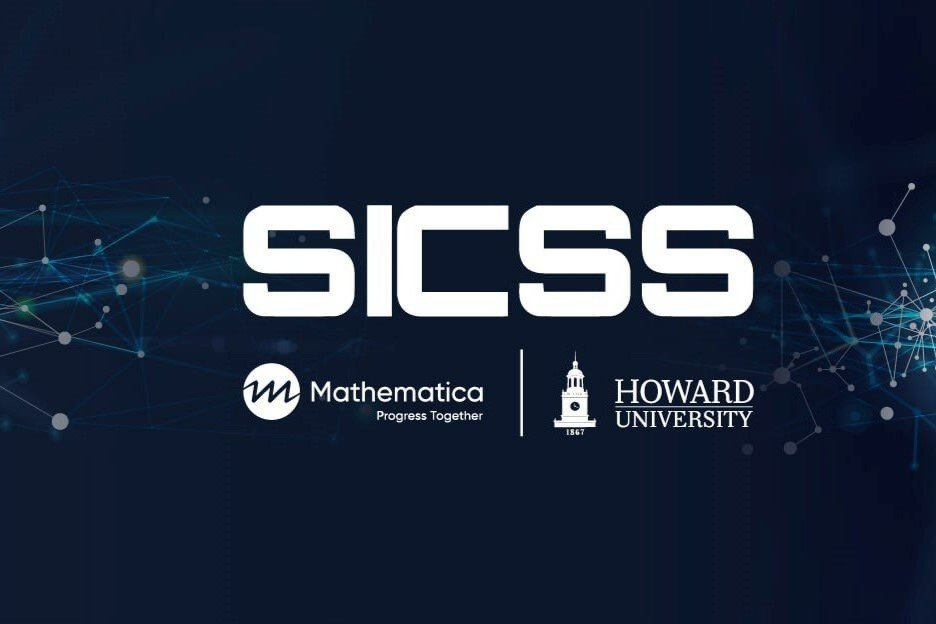Digital Methods for Social Research: OA Articles
While some types of online research use communication tools to interact with remote participants, digital methods use online approaches to study online phenomena.
SICSS-Howard/Mathematica’s 2023 Annual New Frontiers in Research and Technology Panel focuses on “AI + Automation + Work”
This blog is the seventh, and penultimate post, in a follow-on to our 2021 “The future of computational social science is Black” series, about a Summer Institute in Computational Social Science organized by Howard University and Mathematica. It continues to bring the power of computational social science to the issues of systemic racism and inequality in America. This marks the third iteration of the successful SICSS model being hosted by a Historically Black College or University.
Social media research and ethics: what does the user want?
Dr. Stommel brings clarity to the messy world of data collection on social media.
Latanya Sweeney, Harvard Professor and Founder of the Public Interest Technology Lab, Delivers Keynote Address at SICSS-Howard/Mathematica 2023
This blog post is the sixth of eight in a follow-on to our 2021 “The future of computational social science is Black” series, about a Summer Institute in Computational Social Science organized by Howard University and Mathematica. It continues to bring the power of computational social science to the issues of systemic racism and inequality in America. This marks the third iteration of the successful SICSS model being hosted by a Historically Black College or University.
Latanya Sweeney, scholar of technology science, Daniel Paul Professor of the Practice of Government and Technology at the Harvard Kennedy School and in the Harvard Faculty of Arts and Sciences, and director and founder of the Public Interest Tech Lab, delivered the keynote address for SICSS-Howard/Mathematica 2023.
Online research with vulnerable populations
Do you have concerns about how to carry out data collection with vulnerable populations online? Find research strategies for reaching vulnerable people online.
Online Experiments
This collection of open access articles offers multidisciplinary examples, guidance, and perspectives about online experimental research.
Populations and Participants in Online Studies
What are some of the issues researchers face, and what are the experiences of online participants? This collection of open-access articles includes diverse examples and perspectives.
Exploring Innovations in Computational Social Science: Highlights from SICSS-H/M's Bite-Sized Lunchtime Talks 2023
This blog post is the fifth of eight in a follow-on to our 2021 “The future of computational social science is Black” series, about a Summer Institute in Computational Social Science organized by Howard University and Mathematica. It continues to bring the power of computational social science to the issues of systemic racism and inequality in America. This marks the third iteration of the successful SICSS model being hosted by a Historically Black College or University.
Avoid Scams, Imposters, and Fraud in Online Research Participation
How do you know online participants are who they say they are? This collection of articles explores the issues - and solutions.
Insights and Inspirations from Leading Scholars for Future Computational Social Scientists
This blog post is the fourth of eight in a follow-on to our 2021 “The future of computational social science is Black” series, about a Summer Institute in Computational Social Science organized by Howard University and Mathematica. It continues to bring the power of computational social science to the issues of systemic racism and inequality in America. This marks the third iteration of the successful SICSS model being hosted by a Historically Black College or University.
Ethical Dilemmas for Data Collection on Social Media
The wealth of material available online is irresistible to social researchers who are trying to understand contemporary experiences, perspectives, and events. The ethical collection and -use of such material is anything but straightforward. Find open-access articles that explore different approaches.
Ethics & Interview Platforms
How to protect data when recording interviews on videoconference platforms.
The Beauty in Nurturing Communal and Liberating Forms of Computational Social Science
This blog post is the third of eight in a follow-on to our 2021 “The future of computational social science is Black” series, about a Summer Institute in Computational Social Science organized by Howard University and Mathematica. It continues to bring the power of computational social science to the issues of systemic racism and inequality in America. This marks the third iteration of the successful SICSS model being hosted by a Historically Black College or University.
Research Ethics in an Ethics-Challenged World
The public is exposed to news stories about bad academic research behavior online. How can we counter this narrative and build credibility?
Rethinking Inclusivity in Computational Social Science
This blog post is the second of eight in a follow-on to our 2021 “The future of computational social science is Black” series, about a Summer Institute in Computational Social Science organized by Howard University and Mathematica. It continues to bring the power of computational social science to the issues of systemic racism and inequality in America. This marks the third iteration of the successful SICSS model being hosted by a Historically Black College or University.
Interviews on Videoconference Platforms
There are lots of questions to consider when using videoconference platforms for scholarly interviews.
Diary Methods in a Digital World
Pen, smartphone, or computer - any way we can record thoughts can be a a means to gather data for a study using diary methods. This collection of open access articles includes studies using audio, visual, and written diaries.
How are faculty using generative AI in their classrooms?
Faculty have been incorporating generative AI within their classrooms for the past two terms, here are a few examples.
Resources for Online Interviewers
Suggestions and resources to help you collect data with online interviews.
Leveraging Data Science to Address Important Questions
This blog post is the first of eight in a follow-on to our “The future of computational social science is Black” series, about a Summer Institute in Computational Social Science organized by Howard University and Mathematica. It continues to bring the power of computational social science to the issues of systemic racism and inequality in America. This marks the third iteration of the successful SICSS model being hosted by a Historically Black College or University.














